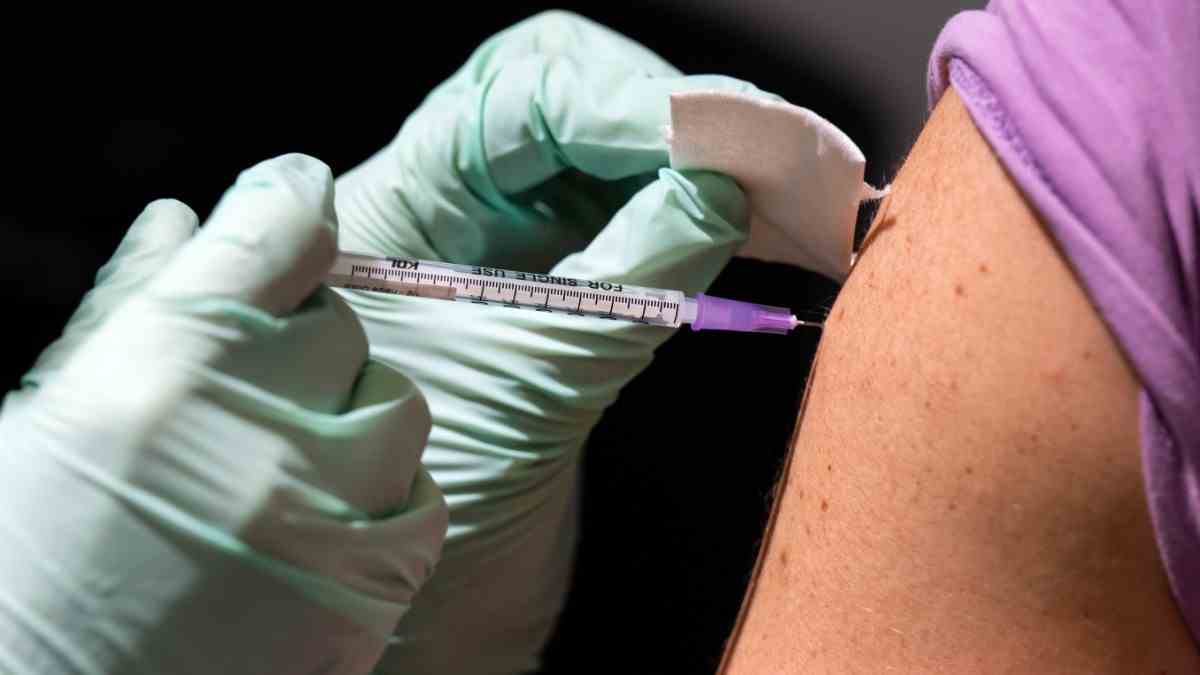The corona vaccination requirement for nursing and hospital staff is legal. The Federal Constitutional Court has rejected several constitutional complaints against as announced on Thursday. The obligation to present proof of vaccination to the employer means a deep encroachment on the physical integrity protected by the Basic Law. However, this intervention is justified because it protects old and sick people who are particularly at risk from infections with the corona virus.
According to the judges, these people also have a particularly high risk of a severe or even fatal course of the disease because they often respond less well to a vaccination themselves. “Vulnerable people can often neither protect themselves effectively through vaccination nor avoid contact with people working in the health and care sector, since they are typically dependent on their services,” the decision says. This justifies requiring the nursing and hospital staff to be vaccinated – also because the impairments caused by immunization are usually minor. “Severe side effects or serious consequences beyond the immune response induced by the administration of the vaccine are very rare.”
The fact that a vaccination does not completely protect against passing on the pathogen does not change this assessment from the point of view of the Karlsruhe court. At the time the law was passed, the vast majority of scientists assumed that vaccinated and recovered people were less likely to become infected. This has not changed fundamentally in recent times. Because it can still be assumed that vaccination “at least offers a relevant – albeit decreasing over time – protection against infection with the currently predominant omicron variant of the virus”. In addition, the pandemic risk situation has not eased to such an extent that vulnerable groups are now less in need of protection.
Even in summary proceedings, the constitutional complaints were unsuccessful
The so-called facility-related compulsory vaccination has been in effect in Germany since mid-March. Since then, employees in nursing homes, clinics, medical practices and outpatient services have had to prove that they have been fully vaccinated or have recently recovered from Corona. This also applies to midwives, masseurs or physiotherapists. Otherwise, the local health department may prohibit them from continuing to work.
Dozens of constitutional complaints have been filed against this, mainly by unvaccinated employees of relevant facilities. In summary proceedings, the Karlsruhe judges rejected these complaints in February. In principle, the partial vaccination requirement is legal, they argued even then. At the same time, however, they expressed formal concerns about the specific version of the law: there is nothing more precise about vaccination and proof of recovery, it is only a regulation with further references to the websites of the Paul Ehrlich Institute and the Robert Koch Institute (RKI). referred. This means that a simple change to the guidelines of the RKI would in fact result in a law passed by Parliament being changed. However, since the relevant passage in the law has now been changed, the constitutional judges have no longer commented on this.
Federal Health Minister Karl Lauterbach (SPD) welcomed the decision with the words: “The state is obliged to protect vulnerable groups.” The institutions that have implemented the vaccination obligation “have played a major role in the fact that there were no more deaths in the severe omicron wave”.
The decision from Karlsruhe now comes at a time when the debate about general vaccination requirements is picking up speed again. Such had failed in early April in the Bundestag. Chancellor Olaf Scholz (SPD) then made it clear that he did not believe in a renewed attempt. At the beginning of the week, however, the health ministers of Bavaria, Baden-Württemberg and Hesse appealed for precisely this in view of a possible imminent corona wave in autumn: the health system must be protected from overload and restrictions for the population avoided.

